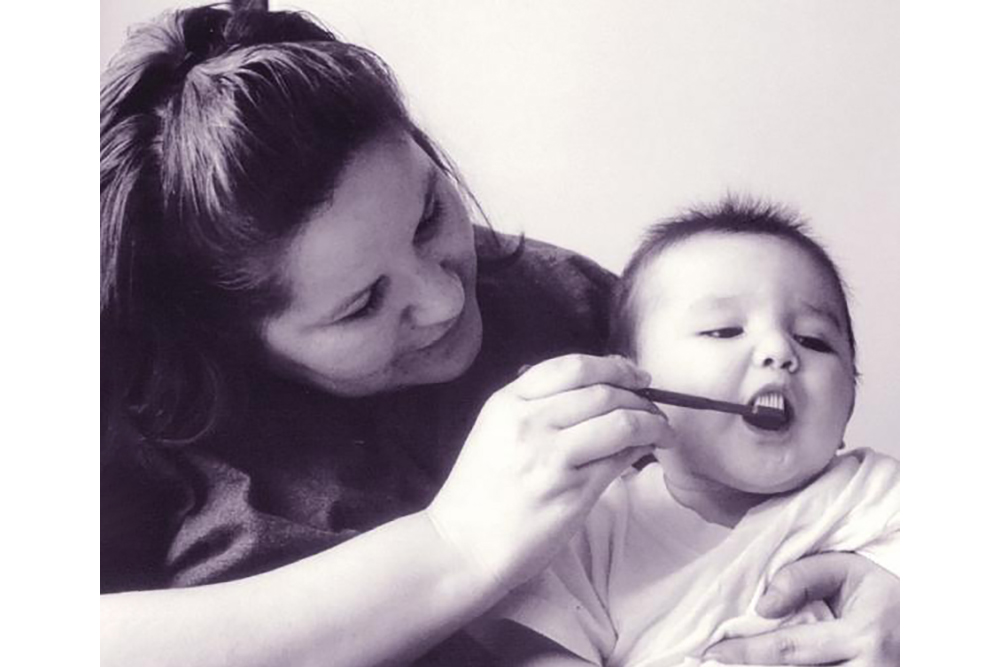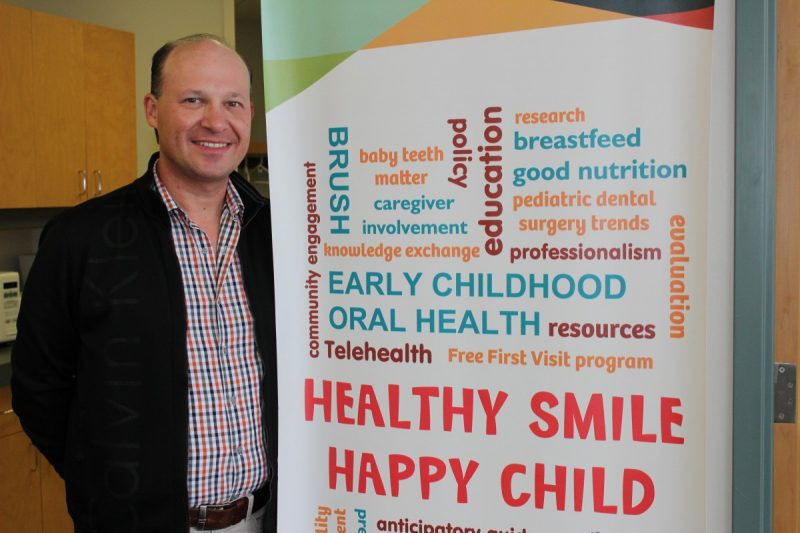
PHOTO BY BRUCE HILDEBRAND
UM partners with Indigenous communities to reduce kids’ tooth decay
A research project that will strive to reduce the high rate of early childhood tooth decay among First Nations and Métis children in Manitoba has been awarded a substantial grant from the Canadian Institutes of Health Research (CIHR).
The five-year study received nearly $1.5 million – the largest grant obtained by any research team from the Rady Faculty of Health Sciences in the Spring 2020 round of CIHR funding.
The project is jointly led by the First Nations Health and Social Secretariat of Manitoba, the Manitoba Metis Federation and UM researchers. It aims to address the significant oral health gap between First Nations and Métis children and all other Canadian children.
“This research is being designed, carried out and evaluated in the spirit of reconciliation, in close partnership with First Nations and Métis communities,” said Dr. Bob Schroth, professor of preventive dental science in the Dr. Gerald Niznick College of Dentistry and of pediatrics/child health and community health sciences in the Max Rady College of Medicine.
“With the ongoing participation of Elders, Knowledge Keepers and community members, we’re ensuring that the promotion of early-childhood oral health is culturally informed, safe, and reflects First Nations and Métis ways of knowing,” said Kathy Yerex, assistant professor in the School of Dental Hygiene, Dr. Gerald Niznick College of Dentistry, and one of the study’s Métis principal investigators.
Dr. Anastasia Kelekis-Cholakis, dean of dentistry, said the CIHR funding validates the progress the dental college is making in collaborating with Indigenous communities. “We’re taking important steps by aligning projects like this with the Rady Faculty’s commitment to the health-related Calls to Action made by the Truth and Reconciliation Commission,” Kelekis-Cholakis said.

DR. BOB SCHROTH
Schroth, a dentist and clinician-scientist who is also a researcher with the Children’s Hospital Research Institute of Manitoba, is a leading expert on Indigenous children’s oral health in Canada.
The new project builds on a previous one in which Schroth’s multidisciplinary team partnered with two Métis communities and two First Nations communities, seeking ways to adapt Manitoba’s long-running Healthy Smile Happy Child initiative to make it more culturally relevant.
Healthy Smile Happy Child promotes early childhood oral care to parents and caregivers. Its decay-prevention messages include: Take children to the dentist before the age of 12 months, never put a baby to bed with a bottle of milk or a sweet drink, wean toddlers from the bottle or sippy cup by the age of 12 months, and brush babies’ teeth from the time they emerge.
The new five-year project, to be conducted in about 10 new First Nations and Métis partner communities (both urban and rural), has two objectives. The first is to integrate Indigenous teachings into Healthy Smile Happy Child. Examples might include sharing traditional stories about keeping teeth healthy and discussing traditional ways to feed and comfort infants.
The project’s second objective is to improve access to care by implementing risk assessment of tooth decay by non-dental primary care providers. Non-dental professionals, such as nurses and doctors, will receive training in using a risk assessment tool to evaluate young children’s oral health.
If a child’s risk score for decay is high, the tool will guide the professional to apply fluoride varnish, refer the child to a dentist and make additional recommendations to the parent or caregiver.
One goal of getting more children assessed earlier in life, Schroth said, is to lower the extremely high rate of dental surgery among Indigenous children. Some children’s baby teeth become so severely decayed that surgery under general anesthesia is the only option. In northern and rural Manitoba, the rate of this surgery is 10 times the Canadian average.
The research team will measure the effectiveness of doing more risk assessment in the communities.
“We expect to find that when health-care providers assess babies’ and preschoolers’ teeth as part of evaluating their overall health, it helps to establish a ‘dental home’ for the child,” Schroth said. “We know that access to dental care and continuity of care are major challenges for First Nations and Métis families.”






